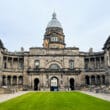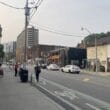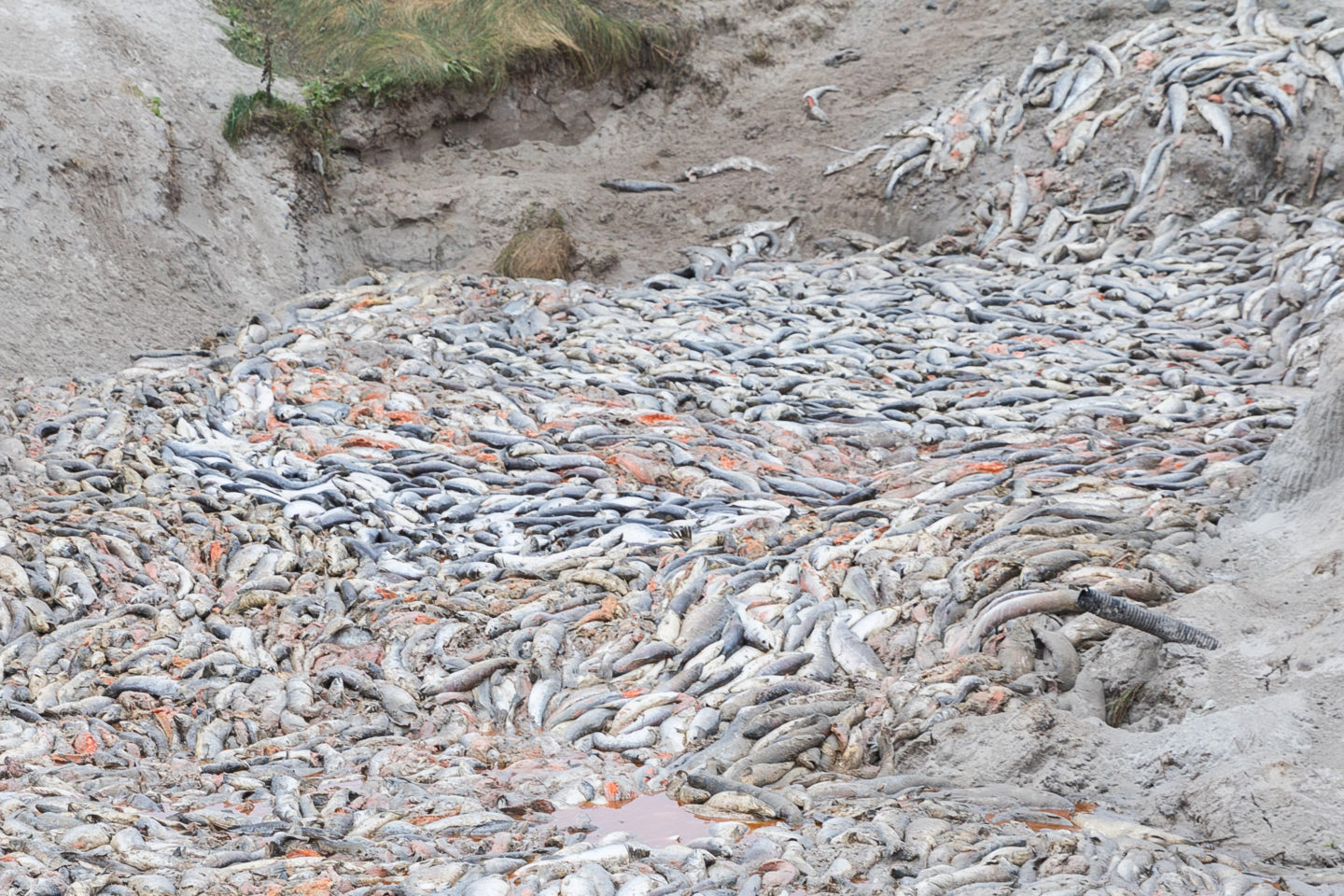The “illegal” dumping of masses of dead fish in sand dunes on a Hebridean beauty spot is finally set to end, The Ferret can reveal.
Whiteshore Cockles, a North Uist landfill, has for years been allowed to bury dead animals shipped from fish farms, despite the practice being illegal.
But the Scottish Government’s 2016 temporary exemption order, which has allowed the dumping to continue, is set to be revoked by 31 March, according to communications between authorities.
The emails, which span from August to November 2021, were obtained under freedom of information law by campaign group Scottish Salmon Watch. “After nearly two decades of campaigning, the imminent closure of Whiteshore Cockles for the burial of diseased farmed salmon is to be welcomed,” said the group’s Don Staniford.
In March 2021, The Ferret found the company accepted dead fish from 16 salmon farms.
Its landfill has long enraged environmental campaigners and locals, who have complained about the stench. Western Isles Council previously cited “evidence of seepage from the side of pits” and inadequate record keeping.
In view of the decade of delay in installing a fish dryer, Scottish Ministers must now ask some very serious questions concerning Whiteshore Cockles and public funding via Highlands & Islands Enterprise
Don Staniford, Scottish Salmon Watch
But the firm has been allowed to continue landfilling while constructing and obtaining funding for a drying facility to process and recycle fish waste. Highlands and Islands Enterprise has given the firm £604,000 in public funding to support the project.
Use of the landfill is “subject to cancellation” by ministers if Whiteshore Cockles fails to stick to strict new rules outlined by authorities, or if the Scottish Environment Protection Agency (Sepa) refuses a permit for its drying plant.
The company told The Ferret in March 2021 that engineers would finalise work at the drying facilities and make it “operational” as soon as Covid-19 lockdown restrictions were eased.
In September, the government told colleagues that March 2022 was Whiteshore Cockles’ “latest estimate” for the plant being “operational”. Sepa confirmed that while it was in discussions with the company about a permit, no application had yet been received.
Strict new rules
On 17 September 2021, a government employee consulted colleagues about a list of conditions that Whiteshore Cockles must follow while its pits remain open.
They told staff from Sepa and the UK Government’s Animal and Plant Health Agency that the Scottish Government and council had agreed the site must only accept dead fish from Uist and Barra. Those farmed on other isles and the mainland must no longer be accepted.
Fish must be buried within four hours of arriving on site, with no fish buried “above ground”. Landfill pits must be covered at night and skips must be cleaned immediately on emptying, the government said.
The weight of dead fish shipments and where they originated must be reported weekly to the council, and the site would be subject to weekly unannounced inspections. Disposal plans for large numbers of fish, caused by “events” leading to a spike in deaths, must be pre-notified to the council and government, the email said.
The business must pay £350 plus VAT each month to cover council monitoring. These conditions would tentatively run until 31 March 2022, in line with Whiteshore Cockles’ latest estimate for its plant being operational.
The government emphasised that if Sepa did not grant a pollution and prevention control (PPC) permit for the drying plant, burial would no longer be allowed and “alternative legal disposal routes” must be used.
In November, Sepa said the firm had withdrawn an earlier application which lacked sufficient plans to contain odours and other emissions. It was due to be resubmitted by March 2022.
If these issues were addressed, a permit would be issued by December and the drying facilities would begin operating by March 2023 or sooner. The government could extend its relaxation of rules around burying dead fish to 31 March 2023 or earlier, if a permit was obtained, Sepa suggested.
‘Friend with a private jet’
We can also reveal that a representative of Whiteshore Cockles repeatedly offered to arrange a private jet to fly three ministers and other government staff from Edinburgh to the Outer Hebrides and back to show them how the drying plant had progressed.
The jet belonged to “a friend” who worked for the Peterborough-based steel fabricators, Roe Group, which has an Edinburgh depot, Whiteshore Cockles told the government. The friend was due to visit a house they owned on the island and was “delighted to help us as he knows the importance of our project to the Uist community,” they said.
A government employee accepted the invitation to visit the site but declined the private jet offer. “My travel would be through Scottish Government travel procedures, with due consideration for environmental impact and in line with the Civil Service Code,” they said.
£600,000 public funding & illegal dumping
The government wrote to Highlands and Islands Enterprise (HIE) on 1 October 2021 to ask whether it had given public grants to the company. “On engaging with Whiteshores, they said the fish waste dryer project is self funded,” the government said.
“Securing this funding was one of the reasons for the delay in building the fish waste dryer. Burial of fish waste cannot go on indefinitely. Scottish Ministers need to have a clear picture of what is happening with the fish waste dryer project.”
HIE confirmed to the government that it had given £404,000 to Whiteshore Cockles in 2016 to help build its drying plant, and a further £200,000 in February 2021 so the firm could expand its fish waste processing.
Don Staniford of Scottish Salmon Watch condemned the grants. “In view of the decade of delay in installing a fish dryer, Scottish Ministers must now ask some very serious questions concerning Whiteshore Cockles and public funding via Highlands & Islands Enterprise,” he said.
“How much money has Whiteshore Cockles made via the illegal dumping of diseased farmed salmon?”
The Scottish Government confirmed that new rules and monitoring processes were being imposed at the site.
“The burial of has been illegal since 2016,” stressed a spokesperson. “An exemption was granted to the operator of a site in North Uist as an interim measure to allow for a fish waste dryer to become operational.
“Installation of the dryer is progressing and, while this takes place, a set of operating conditions is being agreed by the operator and regulatory authorities to ensure that the site is closely managed.”
They added: “We want to create a circular economy in which valuable resources are kept in use for as long as possible and nothing is wasted. We are keen to ensure this is applied across the farmed fish sector, making sure that valuable animal protein does not go to waste.”
A Sepa spokesperson said: “We continue to be in discussions with Whiteshore Cockles regarding their proposals for the salmon mortalities processing plant and their PPC permit application, which has not yet been received.
“Sepa can only issue a permit if, having considered all aspects of the application, it is satisfied the installation will operate within relevant environmental quality standards and comply with the conditions of the PPC permit.”
Whiteshore Cockles declined to comment.
Cover image thanks to Corin Smith.













